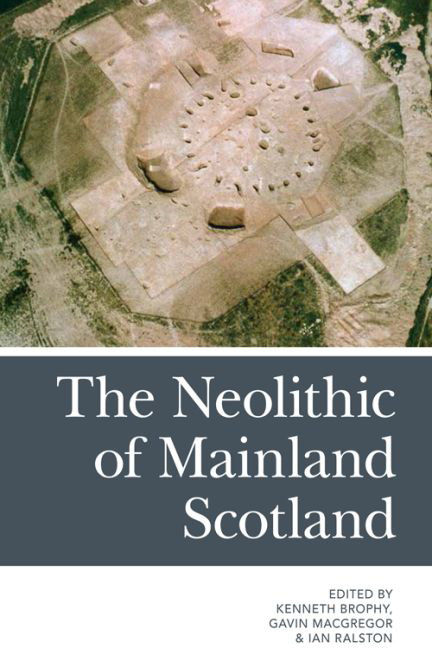Book contents
- Frontmatter
- Contents
- List of Tables and Figures
- Notes on the Contributors
- Acknowledgements
- Foreword: ‘The prehistory of my own lands, the lowlands’
- Part I Scotland's Mainland Neolithic in Context
- 1 Gordon Barclay: A Career in the Scottish Neolithic
- 2 Neolithic Pasts, Neolithic Futures: The Contemporary Sociopolitics of Prehistoric Landscapes
- 3 ‘Very real shared traditions’? Thinking about Similarity and Difference in the Construction and Use of Clyde Cairns in the Western Scottish Neolithic
- 4 Who Were These People? A Sideways View and a Non-answer of Political Proportions
- 5 Pathways to Ancestral Worlds: Mortuary Practice in the Irish Neolithic
- Part II Non-megalithic Monuments
- Part III Pits, Pots and Practice
- Index
2 - Neolithic Pasts, Neolithic Futures: The Contemporary Sociopolitics of Prehistoric Landscapes
from Part I - Scotland's Mainland Neolithic in Context
Published online by Cambridge University Press: 15 September 2017
- Frontmatter
- Contents
- List of Tables and Figures
- Notes on the Contributors
- Acknowledgements
- Foreword: ‘The prehistory of my own lands, the lowlands’
- Part I Scotland's Mainland Neolithic in Context
- 1 Gordon Barclay: A Career in the Scottish Neolithic
- 2 Neolithic Pasts, Neolithic Futures: The Contemporary Sociopolitics of Prehistoric Landscapes
- 3 ‘Very real shared traditions’? Thinking about Similarity and Difference in the Construction and Use of Clyde Cairns in the Western Scottish Neolithic
- 4 Who Were These People? A Sideways View and a Non-answer of Political Proportions
- 5 Pathways to Ancestral Worlds: Mortuary Practice in the Irish Neolithic
- Part II Non-megalithic Monuments
- Part III Pits, Pots and Practice
- Index
Summary
Introduction
In this chapter I wish to extend an exploration, which Gordon Barclay pioneered, into the landscapes of the Neolithic. While many others were intent on mapping the Neolithic landscapes of the past, Gordon commenced an important journey from the archaeology of the Neolithic to the heritage of Scotland by beginning to explore elements of the perception of the remnants of Neolithic landscapes in the present. This research manifested itself in a number of significant papers that reflected on the assumptions that had traditionally underpinned practices in relation to contemporary socio-political categories that affected the ways in which the Neolithic of Scotland (and indeed beyond) was represented. Thus, this chapter will comprise several sections: in the first, I shall reflect on the nature of Gordon's contribution to the critique of the contemporary socio-politics of the Neolithic through a synthesis of some of his key publications on this subject; and in the second, I shall consider how our current conceptions of landscapes and the nature of our practices may be affecting our interpretations of, and relationships with, those landscapes that have significant Neolithic components. In the final section, I shall begin tentatively to suggest some of the ways these themes may converge and explore what this potentially means for our practices in the future.
Historiographies of the Neolithic
In the first paper which I wish to consider, ‘Between Orkney and Wessex’, Gordon explored the regionality of the Neolithic in Scotland and beyond (Barclay 2000). It had long been recognised that there is regional variation in the character of evidence from the Scottish Neolithic, but this tended to privilege the upstanding stone monuments that predominated in the record; and many earlier commentators considered such variation as either a reflection of past patterns or the outcome of differences in survival or visibility (Piggott 1954; Sharples and Sheridan 1992; see also Brophy and Barclay 2009). In this respect, Barclay stressed the radical contribution that the results of investigations over the previous couple of decades had made to our understanding of the character of the Neolithic in lowland contexts (Barclay 2000: 277). However, more importantly, he extended a critique of earlier accounts not simply in terms of the impact of new data revealing new patterns; rather he was concerned with the ways in which interpretative models affected the regional prehistories that up to that point had been constructed and narrated.
- Type
- Chapter
- Information
- The Neolithic of Mainland Scotland , pp. 21 - 40Publisher: Edinburgh University PressPrint publication year: 2016



